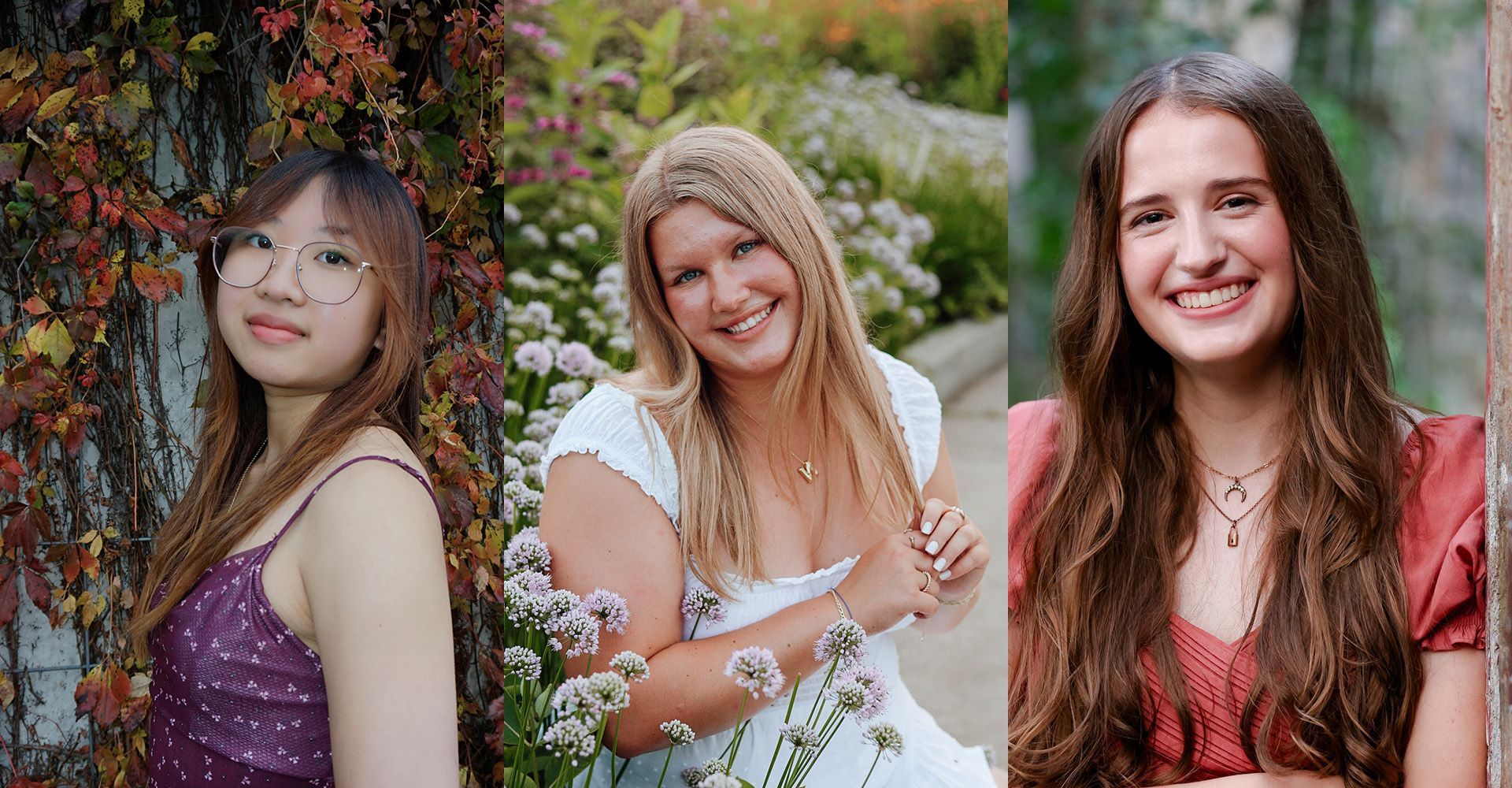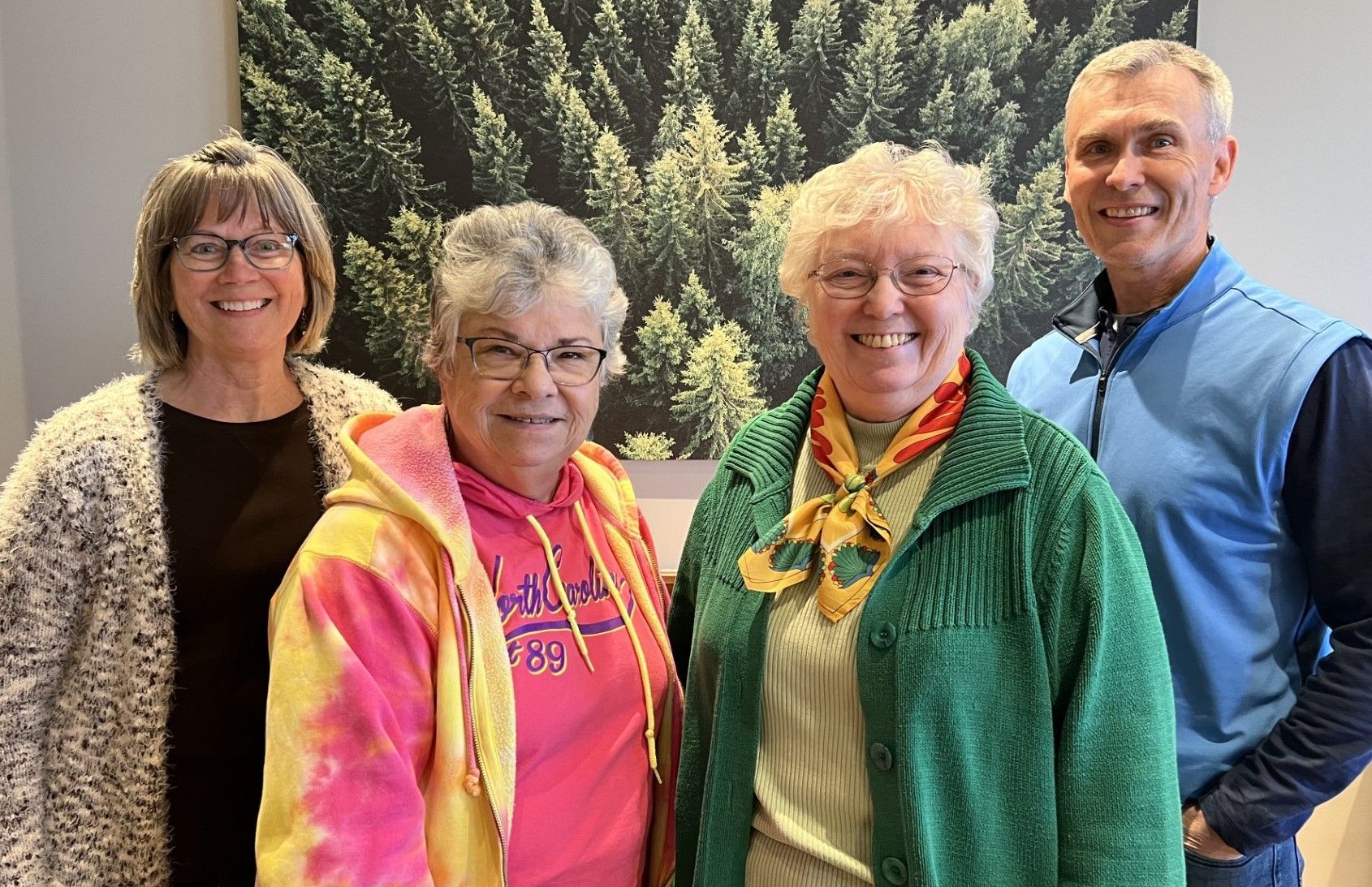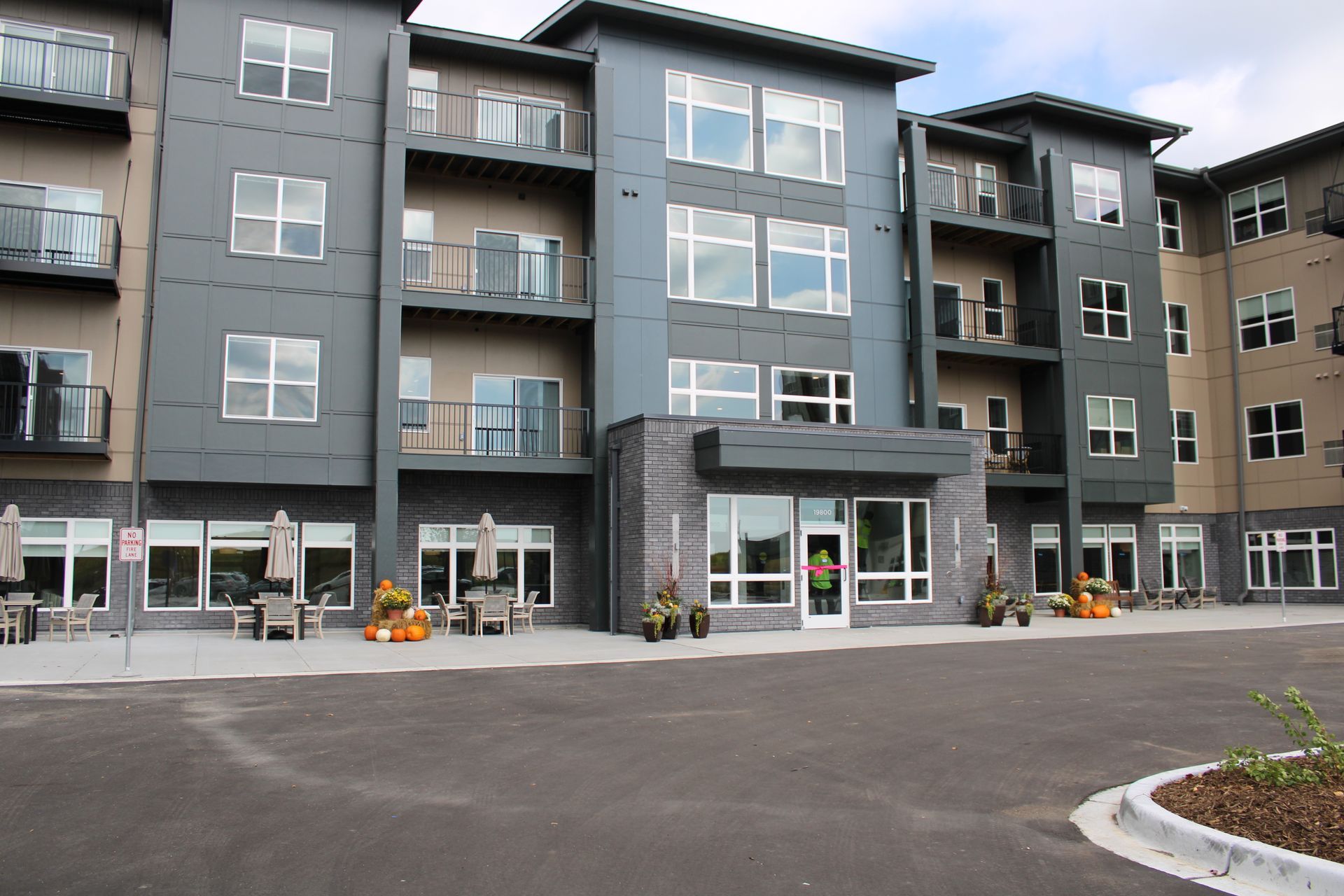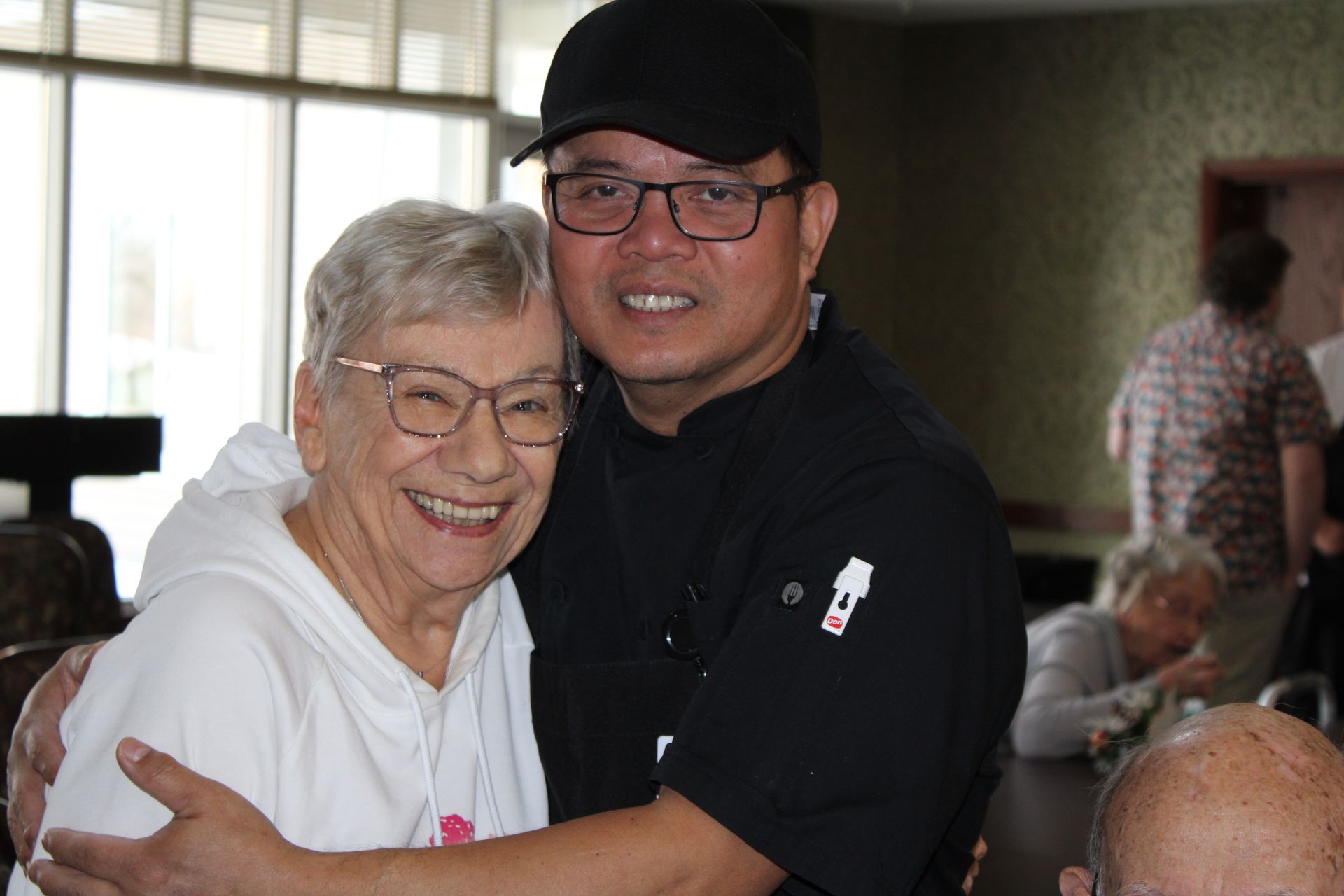
Celebrating Youth Volunteer Excellence: Saint Therese Awards Scholarships to Inspiring Students
Generational Connections Changing Lives
Every year, Saint Therese recognizes the dedication and compassion of teenage volunteers through its Youth Volunteer Scholarships, shining a light on the transformative power of service.
This year, three high school seniors—Nichole Bertini from Hill Murray High School, Eliza Kubicek from East Ridge High School, and Amy Nguyen from Osseo High School—were each awarded $2,000 educational scholarships for their contributions to enriching the lives of older adults.
The awards, celebrated at receptions in Saint Therese senior communities in late May, drew from a competitive pool of 23 essay submissions representing 16 high schools across three states. The stories shared by these young leaders highlight the profound mutual impact of intergenerational connections and the lasting lessons learned through volunteerism.
Meet the Scholarship Recipients
Nichole Bertini: Compassion in Action
A senior at Hill Murray High School in Maplewood, Nichole Bertini discovered her calling through her volunteer work at Lakeview Hospital in Stillwater, Minn. Her essay, “Hand in Hand: The Mutually Beneficial Impacts of Volunteering,” describes her journey of finding purpose in service and connection.
Initially apprehensive about her role as a hand masseuse, Nichole soon realized the profound power of offering comfort and companionship to older adults. A pivotal moment came when a patient asked her to stay and hold her hand during a challenging medical consultation. This experience confirmed her wish to pursue a career in nursing while deepening her respect for the resilience and humanity of older adults.
Nichole exemplifies the spirit of compassion at the heart of Saint Therese’s mission. This fall, she will attend Creighton University in Omaha to major in Nursing, continuing her journey of care and connection.
Eliza Kubicek: Bridging Generations Through Technology
Eliza Kubicek, a senior at East Ridge High School in Woodbury, turned her passion for technology into a lifeline for older adults. Through her nonprofit, Savvy Seniors, Eliza provided personalized tech support to help seniors navigate the digital world with confidence. Her efforts ranged from setting up life-saving devices like fall alerts to teaching photo-sharing basics, all delivered in a welcoming, judgment-free environment.
Eliza’s essay captured the way these tech sessions often blossomed into meaningful friendships, fostering cross-generation connections. Her work has not only empowered older adults but also strengthened her own empathy, communication skills, and appreciation for the wisdom of those she serves.
This fall, Eliza will begin her studies in Biomedical Engineering at the University of Wisconsin–Madison, aiming to become a Biomedical Engineer and continue creating innovative solutions to help others.
Amy Nguyen: Finding Joy in Service
For Amy Nguyen, a senior at Osseo High School, a simple flyer in the mail led to an unforgettable journey of connection and growth. Nervous on her first day volunteering at Saint Therese of Oxbow Lake in Brooklyn Park, Amy soon found herself forming heartfelt connections with residents through shared stories, laughter, and creative activities.
In her essay, “Healing in More Ways Than One,” Amy reflected on how these relationships enriched her perspective and allowed her to bring joy to others. Her dedication to building bonds with older adults has left a lasting impact.
A Legacy of Service
These three remarkable students represent the very best of what youth volunteerism can achieve. Through their unique contributions—whether offering comfort, bridging the digital divide, or simply sharing a listening ear—they have enriched the lives of older adults and strengthened the bonds between generations.
At Saint Therese, we are honored to support their educational journeys and celebrate their outstanding efforts. We look forward to seeing how these bright young leaders will continue to make a difference in their communities and beyond.
And, I’d be remiss without acknowledging and thanking our volunteer judging committee, who gave of their time to read the essays, judge them and choose our winners. Many thanks to Nancy Schaber, Rosemary Wallin, Ginger Ayers and Vince Opat (left to right, below)!

About
At Saint Therese, our heartfelt purpose since 1968 has been a people first approach to living well by providing senior care and services where every life we touch feels welcomed, respected, and heard. We achieve this by doing ordinary things with extraordinary love every single day. Contact us to learn more.







